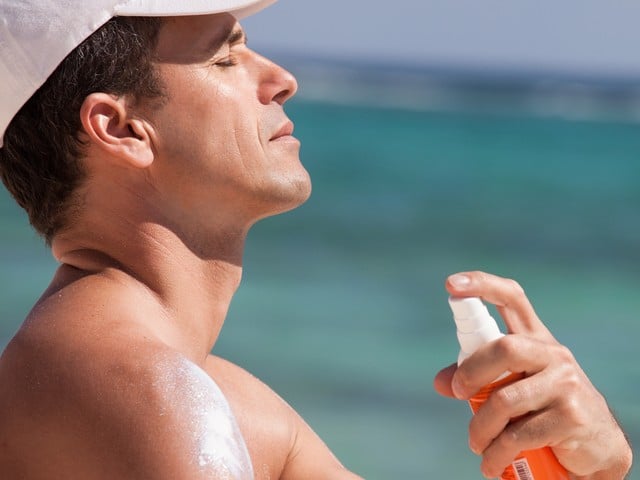
What are some ways to protect my skin this summer?
Our dermatologists provide the following recommendations to keep skin healthy and clear:
- Avoid sun exposure during the peak midday hours (10 a.m. to 4 p.m.).
- Seek shade whenever possible, especially when outdoors for extended periods of time.
- Generously apply a broad-spectrum sunscreen with an SPF of 30 or higher every two hours, even on cloudy days and after swimming or sweating. Be sure to cover all exposed areas of skin, including the face, neck, ears, and hands.
- Wear protective clothing, such as long-sleeved shirts, pants, and hats, when spending significant time outdoors and in areas without shade.
- Use extra caution near water, snow, and sand as they reflect the harmful rays of the sun and can increase your risk of sunburn, regardless of whether or not the sun is out that day. Cloudy days do not mean that your skin is protected from damage.
- Avoid tanning beds, which emit harmful ultraviolet (UV) rays that can damage your skin and lead to skin cancer.
By following these simple tips, you can enjoy the outdoors while keeping your skin healthy and protected from the sun’s harmful rays. If you have questions about sun exposure and conditions such as skin cancer, it is best that you connect with the team at the Rendon Center for more information. Our team can be reached by calling 561-750-0544 to request an appointment with our staff and to determine ways to protect your skin and reduce your risk of skin cancer.

